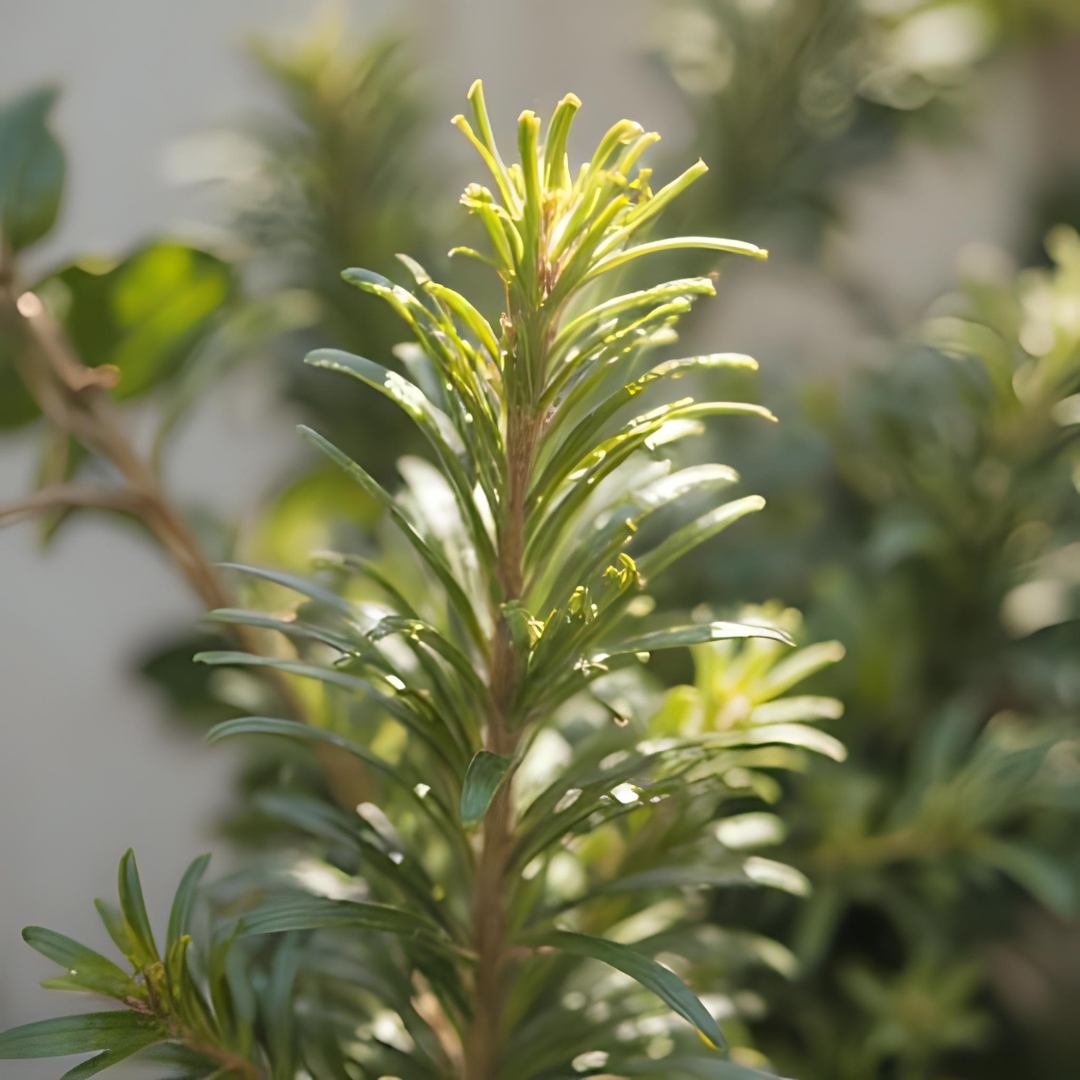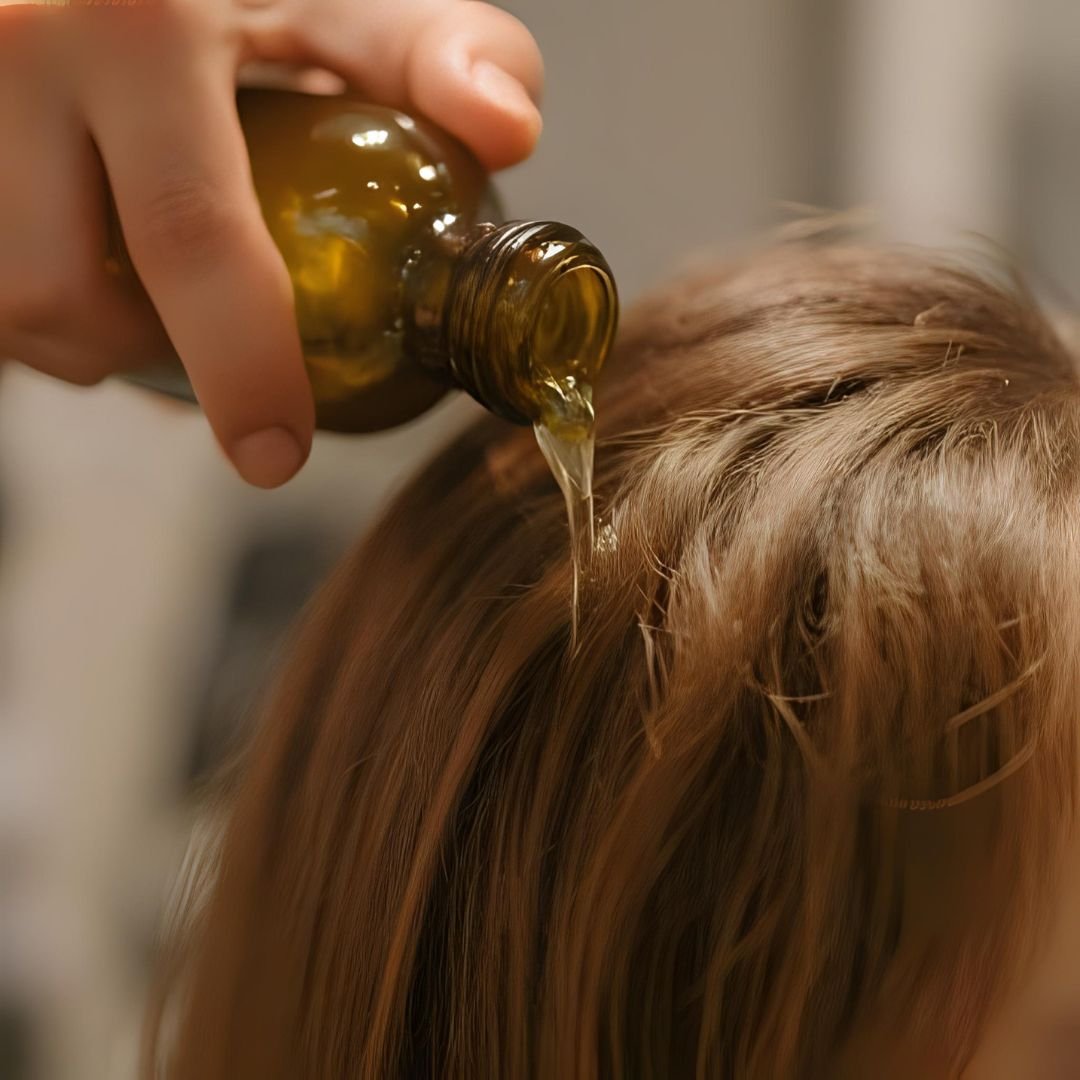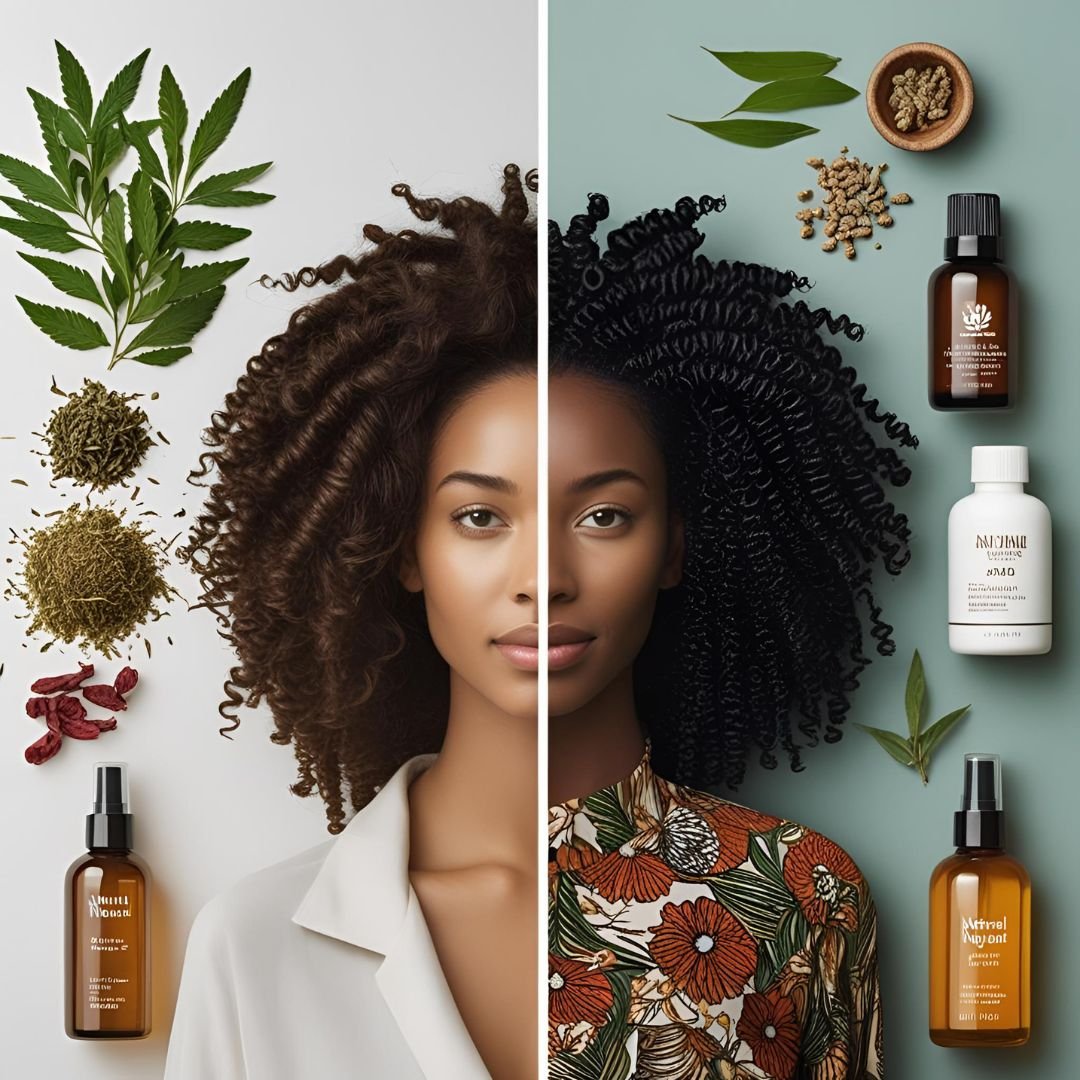For over 5,000 years, Ayurveda—India's ancient system of medicine—has offered profound insights into hair care through the use of medicinal herbs. These botanicals don't just treat symptoms; they address the root causes of hair problems by balancing the body's doshas (constitutional energies) and nourishing hair from within. Today, modern research is validating what Ayurvedic practitioners have known for millennia: these herbs possess remarkable properties for promoting healthy, lustrous hair.
Understanding the Ayurvedic Approach to Hair Health
In Ayurveda, hair health is intrinsically linked to your overall constitution and the balance of three doshas: Vata, Pitta, and Kapha. Each dosha influences hair differently:
| Dosha | Hair Characteristics | Common Issues | Balancing Herbs |
|---|---|---|---|
| Vata | Dry, frizzy, thin | Split ends, brittleness | Bhringraj, Ashwagandha |
| Pitta | Fine, soft, straight | Premature graying, hair loss | Amla, Brahmi |
| Kapha | Thick, oily, wavy | Excessive oiliness, dandruff | Neem, Shikakai |
The Top 10 Ayurvedic Herbs for Hair
1. Bhringraj (Eclipta alba)
"The King of Hair" - Keshraj
Bhringraj has earned its royal title through centuries of proven results. Modern studies have shown that bhringraj extract can promote hair growth more effectively than minoxidil in some cases. The herb contains wedelolactone and demethylwedelolactone, compounds that stimulate hair follicles and extend the anagen (growth) phase of hair.
Benefits:
- Promotes rapid hair growth
- Prevents premature graying
- Strengthens hair roots
- Improves hair texture and shine
How to use: Mix bhringraj powder with coconut oil to create a hair mask, or use bhringraj-infused oil for regular scalp massage.
2. Amla (Emblica officinalis)
"The Indian Gooseberry" - Amalaki
Amla is one of the richest natural sources of vitamin C, containing 20 times more than an orange. This powerhouse antioxidant protects hair follicles from oxidative stress and supports collagen production, essential for hair strength.
Benefits:
- Prevents premature graying
- Strengthens hair shaft
- Adds natural shine and volume
- Balances scalp pH
How to use: Consume fresh amla juice daily or apply amla powder mixed with henna for a nourishing hair treatment.
3. Brahmi (Bacopa monnieri)
"The Brain Tonic" - Mandukaparni
While famous for cognitive enhancement, Brahmi is equally powerful for hair health. Its alkaloids bind to hair proteins, creating a protective layer that prevents damage and breakage.
Benefits:
- Reduces stress-related hair fall
- Nourishes hair roots
- Treats dry scalp and dandruff
- Promotes thicker hair growth
How to use: Apply brahmi oil before bed for overnight treatment, or mix brahmi powder with yogurt for a cooling hair mask.
4. Ashwagandha (Withania somnifera)
"The Strength of a Horse" - Indian Ginseng
Ashwagandha is an adaptogenic herb that addresses one of the primary causes of hair loss: stress. By regulating cortisol levels, it helps prevent stress-induced hair fall and premature graying.
Benefits:
- Reduces cortisol-related hair loss
- Stimulates melanin production
- Improves scalp circulation
- Strengthens hair from within
How to use: Take ashwagandha supplements (consult a practitioner for dosage) or apply ashwagandha-infused oil to the scalp.
5. Neem (Azadirachta indica)
"The Village Pharmacy" - Nimba
Neem's powerful antimicrobial and antifungal properties make it exceptional for treating scalp conditions. Its high fatty acid content also conditions hair naturally.
Benefits:
- Eliminates dandruff and scalp infections
- Unclogs hair follicles
- Regulates excess oil production
- Prevents lice and scalp irritation
How to use: Boil neem leaves in water and use as a final rinse, or apply neem oil diluted with coconut oil.
6. Shikakai (Acacia concinna)
"Fruit for Hair" - Natural Shampoo
Shikakai has been used as a natural cleanser for centuries. Rich in saponins, it gently cleanses without stripping natural oils, maintaining the scalp's delicate pH balance.
Benefits:
- Natural, gentle cleansing
- Detangles hair naturally
- Adds shine without chemicals
- Prevents split ends
How to use: Soak shikakai pods overnight, strain, and use the liquid as shampoo, or mix shikakai powder with other herbs for a cleansing paste.
7. Methi (Trigonella foenum-graecum)
"Fenugreek Seeds" - Methika
Fenugreek seeds are rich in proteins and nicotinic acid, proven to stimulate hair growth. The lecithin in methi acts as a natural emollient, conditioning and moisturizing hair.
Benefits:
- Repairs damaged hair
- Treats hair thinning
- Adds natural shine
- Prevents dandruff
How to use: Soak seeds overnight, grind into paste, and apply as a hair mask for 30-45 minutes.
8. Reetha (Sapindus mukorossi)
"Soapnut" - Arishta
Reetha contains natural saponins that create a gentle lather, making it an excellent natural alternative to synthetic shampoos. It's particularly beneficial for sensitive scalps.
Benefits:
- Gentle, natural cleansing
- Adds natural bounce and volume
- Prevents hair infections
- Suitable for all hair types
How to use: Boil reetha nuts in water, strain, and use as a natural shampoo or combine with shikakai for enhanced benefits.
9. Jatamansi (Nardostachys jatamansi)
"Spikenard" - The Stress Reliever
Jatamansi is renowned for its calming properties and ability to improve hair growth by enhancing blood circulation to the scalp. It's particularly effective for stress-related hair issues.
Benefits:
- Promotes new hair growth
- Prevents hair graying
- Improves hair texture
- Calms inflamed scalp
How to use: Mix jatamansi powder with coconut oil for a therapeutic hair oil, or add to henna for added benefits.
10. Hibiscus (Hibiscus rosa-sinensis)
"Japa Pushpa" - The Flower of Hair Care
Hibiscus flowers and leaves are rich in amino acids, vitamin C, and alpha-hydroxy acids that nourish hair follicles and promote healthy growth.
Benefits:
- Stimulates hair regrowth
- Prevents premature graying
- Conditions hair naturally
- Treats dandruff and itchy scalp
How to use: Crush fresh hibiscus flowers and leaves with coconut oil, or use dried hibiscus powder in hair masks.
Creating Your Personalized Ayurvedic Hair Care Routine
The key to success with Ayurvedic herbs lies in consistency and choosing the right combination for your specific needs. Here's how to create an effective routine:
Weekly Ayurvedic Hair Care Ritual
- Day 1-2: Oil massage (Abhyanga) with herb-infused oils
- Day 3: Deep conditioning mask with amla, brahmi, or bhringraj
- Day 4-5: Gentle cleansing with shikakai or reetha
- Day 6: Nourishing treatment with methi or hibiscus
- Day 7: Rest day - let hair breathe naturally
The Science Behind Traditional Wisdom
Recent scientific studies have validated many traditional uses of these herbs:
"A 2019 study published in the Journal of Ethnopharmacology found that bhringraj extract increased the number of hair follicles by 87% in test subjects, outperforming standard treatments."
Similarly, research on amla has shown its ability to inhibit 5-alpha reductase, the enzyme responsible for converting testosterone to DHT, a primary cause of pattern baldness.
Combining Herbs for Synergistic Effects
Ayurveda emphasizes the concept of 'Sanskara'—the enhancement of properties through combination. Here are powerful combinations:
- For Hair Growth: Bhringraj + Amla + Brahmi
- For Dandruff: Neem + Methi + Shikakai
- For Premature Graying: Amla + Jatamansi + Hibiscus
- For Dry Hair: Brahmi + Ashwagandha + Coconut oil
- For Oily Scalp: Neem + Reetha + Shikakai
Experience the Power of Ayurvedic Hair Care
Discover our carefully formulated products that combine these powerful Ayurvedic herbs for optimal hair health.
Explore Our Ayurvedic CollectionPrecautions and Considerations
While Ayurvedic herbs are generally safe, keep these points in mind:
- Always perform a patch test before using any new herb
- Some herbs may cause photosensitivity - avoid sun exposure after application
- Pregnant and nursing women should consult an Ayurvedic practitioner
- Results typically appear after 3-4 months of consistent use
- Quality matters - source herbs from reputable suppliers
The Holistic Approach: Beyond External Application
Ayurveda teaches that true hair health comes from within. Alongside topical treatments, consider:
- Diet: Include protein-rich foods, iron, and omega-3 fatty acids
- Hydration: Drink at least 8 glasses of water daily
- Sleep: Maintain regular sleep patterns for hormonal balance
- Stress Management: Practice yoga and meditation
- Seasonal Adjustments: Adapt your routine to seasonal changes
Conclusion: Embracing Ancient Wisdom
Ayurvedic herbs offer a time-tested, holistic approach to hair care that addresses not just symptoms but root causes. By understanding your unique constitution and choosing appropriate herbs, you can achieve the healthy, lustrous hair that nature intended. Remember, Ayurveda is not about quick fixes but sustainable, long-term health. With patience and consistency, these ancient botanicals can transform your hair care journey.
As you embark on your Ayurvedic hair care journey, remember that each person's path is unique. What works for one may need adjustment for another. Listen to your body, observe how your hair responds, and don't hesitate to consult with an Ayurvedic practitioner for personalized guidance.



